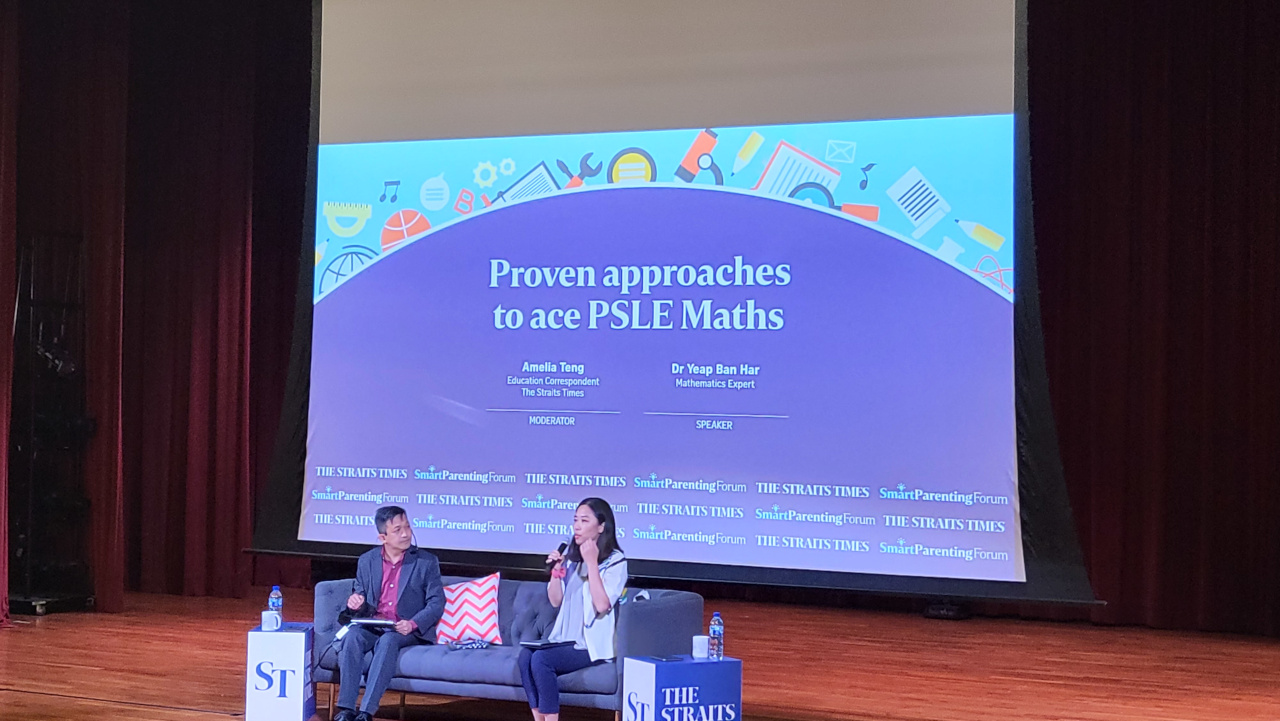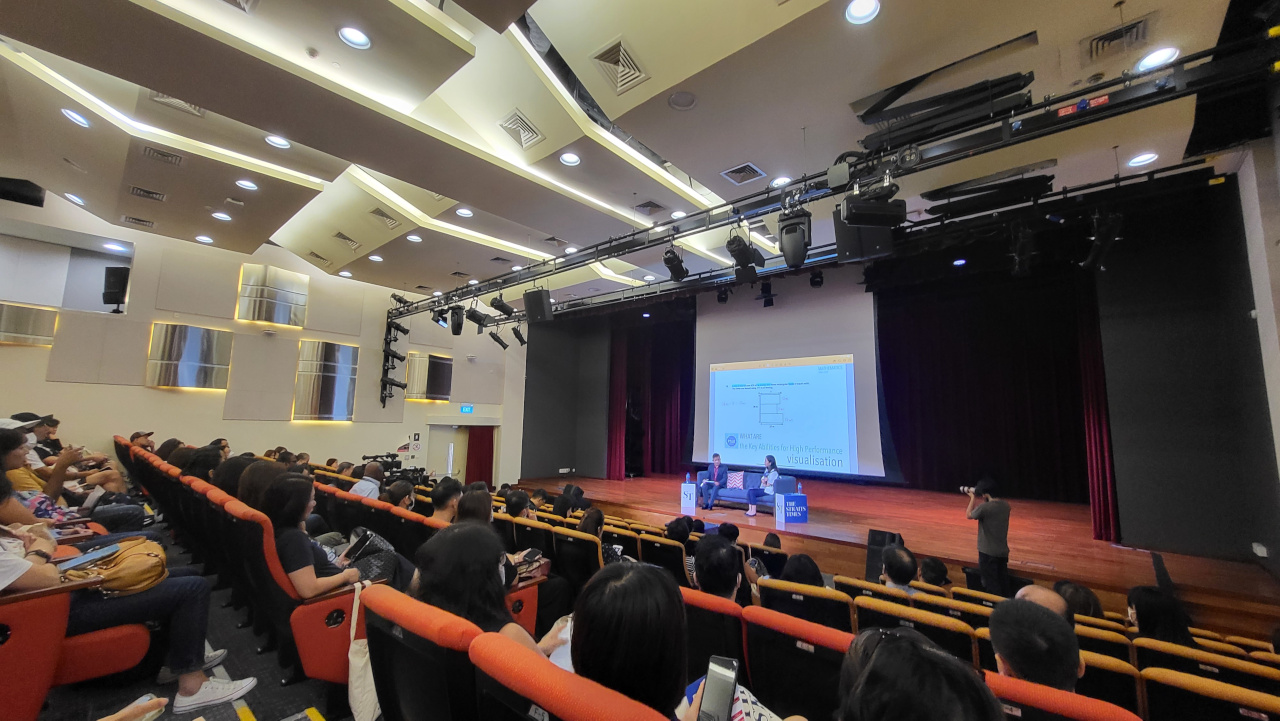The AuraBuddy team recently attended The Straits Times Smart Parenting Forum on PSLE Preparation. From the questions raised by the audience, we found that the challenge of mathematics questions remains a top concern among parents.
To address these concerns, Dr. Yeap Ban Har, a mathematics expert with a decade of experience at the National Institute of Education (NIE) and Director of Curriculum at Pathlight School, shared valuable tips during his breakout session titled "Proven Approaches to Ace PSLE Maths." This article highlights the key points discussed during the session and the suggestions offered to parents and primary six students to prepare for the Primary School Leaving Examination (PSLE) coming up at the end of the year.

Harnessing Mental Calculation
A surprising piece of advice that came up in the session was the advocacy of mental calculation by students. Conventionally, students have been asked to avoid mental calculations as it led to more calculation mistakes.
Dr. Yeap shared that there have been studies showing that a student's dexterity at mental calculations seems to improve the accuracy of his/her mathematical working. He suggested that the calculation mistakes that occur frequently at the beginning when the child is just getting started with mental calculations is to be expected. With time and practice, the mistakes should occur less, and the accuracy should increase.
He also emphasised that the proficiency in mental calculations also improves what he calls number sense in the student. This is one of five key abilities that he shared at the beginning of the breakout session. He described them as key skills that any student at any level should have in order to be proficient at mathematics. Thus he recommended that students should be discouraged from using the calculator as much as possible, and to rely on their mental calculations instead.
Strategic Checking for Accuracy
The audience raised questions regarding the most effective approach to checking answers. One person specifically asked whether students should be checking the answer immediately after answering the question, or should they only do so after completing the paper.
Traditionally, students are advised to "always check" their answers. However, Dr. Yeap presented an alternative perspective - one where students should not be encouraged to always check their answers.
One approach, he suggested, is to get the students to develop confidence in their answers. He linked it back to the concept of number sense and method cognition (two of the five key abilities) that, if the student exhibits strong traits in, will mean "checking" of the answers should be a natural on-going process as the student works on the questions, without having to "go back" to check.
In other words, the students should be taught when to check their answers, rather than being told to check every single one of their answers.
Allocation of Marks for Answers and Working
Another category of questions raised have to do with the allocation of marks to answers. In particular, instances where marks were deducted even though the final answer is correct, due to the approach that the student used in deriving the answer.
Dr. Yeap clarified that for national exams, providing the correct answer is sufficient for basic questions in the first part. Unless otherwise specified, marks are not allocated for the working method.
A member of the audienced asked specifically whether marks would be allocated for working even if the numbers used in subsequent workings are incorrect due to an error in the beginning step. According to Dr. Yeap, the guideline appears to be that so long as the "mathematical integrity" of the steps is not compromised, there should be marks for the workings as well.
He repeated that for national exams, any method that is able to yield the correct answer will not be penalised. Although he did share the interesting observation that questions that are answered using algebra calculations (in contrast to modelling methods) generally see either full marks awarded or none at all. We understand that, at least for primary six students, the use of algebraic equations does not illustrate a student's understanding of the problem presented, and thus did not earn the points for working.
Strategies for Improvement
One parent asked if Dr. Yeap had any advice for his child who, despite extensive practice, is only able to achieve between 60 to 70 marks for the test papers.
Like a reassuring parent, he pointed out that the mark range is already commendable. Being able to score a pass means that the child's mathematical foundation is solid. Scoring around 70 means that the child demonstrates the ability to formulate solutions to real world problems.
He suggested that the student can focus on honing the key abilities (number sense, communication, visualisation, method cognition, and pattern recognition) as an alternative to drilling on assessment practice.

Conclusion
Overall, we found the session to be enlightening. There were definitely pieces of advice that we think will be beneficial to students preparing for the PSLE at the end of the year. We hope that with the advice the parents got from this session, along with consistent work, the students will find success in the form of their PSLE grades.
If you are looking for inspiration, this YouTube video of Dr. Yeap on "Why students need struggle in order to succeed" may just give students the motivation that they need.
Good luck to the students!